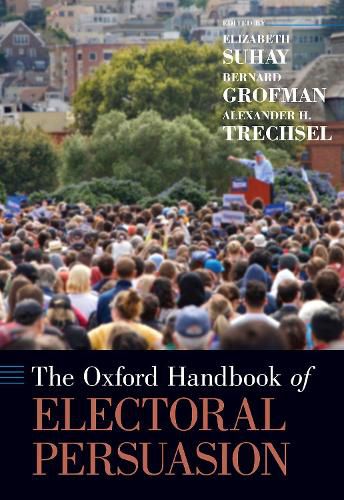Readings Newsletter
Become a Readings Member to make your shopping experience even easier.
Sign in or sign up for free!
You’re not far away from qualifying for FREE standard shipping within Australia
You’ve qualified for FREE standard shipping within Australia
The cart is loading…






Elections are the means by which democratic nations determine their leaders, and communication in the context of elections has the potential to shape people's beliefs, attitudes, and actions. Thus, electoral persuasion is one of the most important political processes in any nation that regularly holds elections. Moreover, electoral persuasion encompasses not only what happens in an election but also what happens before and after, involving candidates, parties, interest groups, the media, and the voters themselves.This volume surveys the vast political science literature on this subject, emphasizing contemporary research and topics and encouraging cross-fertilization among research strands. A global roster of authors provides a broad examination of electoral persuasion, with international perspectives complementing deep coverage of U.S. politics. Major areas of coverage include: general models of political persuasion; persuasion by parties, candidates, and outside groups; media influence; interpersonal influence; electoral persuasion across contexts; and empirical methodologies for understanding electoral persuasion.
$9.00 standard shipping within Australia
FREE standard shipping within Australia for orders over $100.00
Express & International shipping calculated at checkout
Elections are the means by which democratic nations determine their leaders, and communication in the context of elections has the potential to shape people's beliefs, attitudes, and actions. Thus, electoral persuasion is one of the most important political processes in any nation that regularly holds elections. Moreover, electoral persuasion encompasses not only what happens in an election but also what happens before and after, involving candidates, parties, interest groups, the media, and the voters themselves.This volume surveys the vast political science literature on this subject, emphasizing contemporary research and topics and encouraging cross-fertilization among research strands. A global roster of authors provides a broad examination of electoral persuasion, with international perspectives complementing deep coverage of U.S. politics. Major areas of coverage include: general models of political persuasion; persuasion by parties, candidates, and outside groups; media influence; interpersonal influence; electoral persuasion across contexts; and empirical methodologies for understanding electoral persuasion.